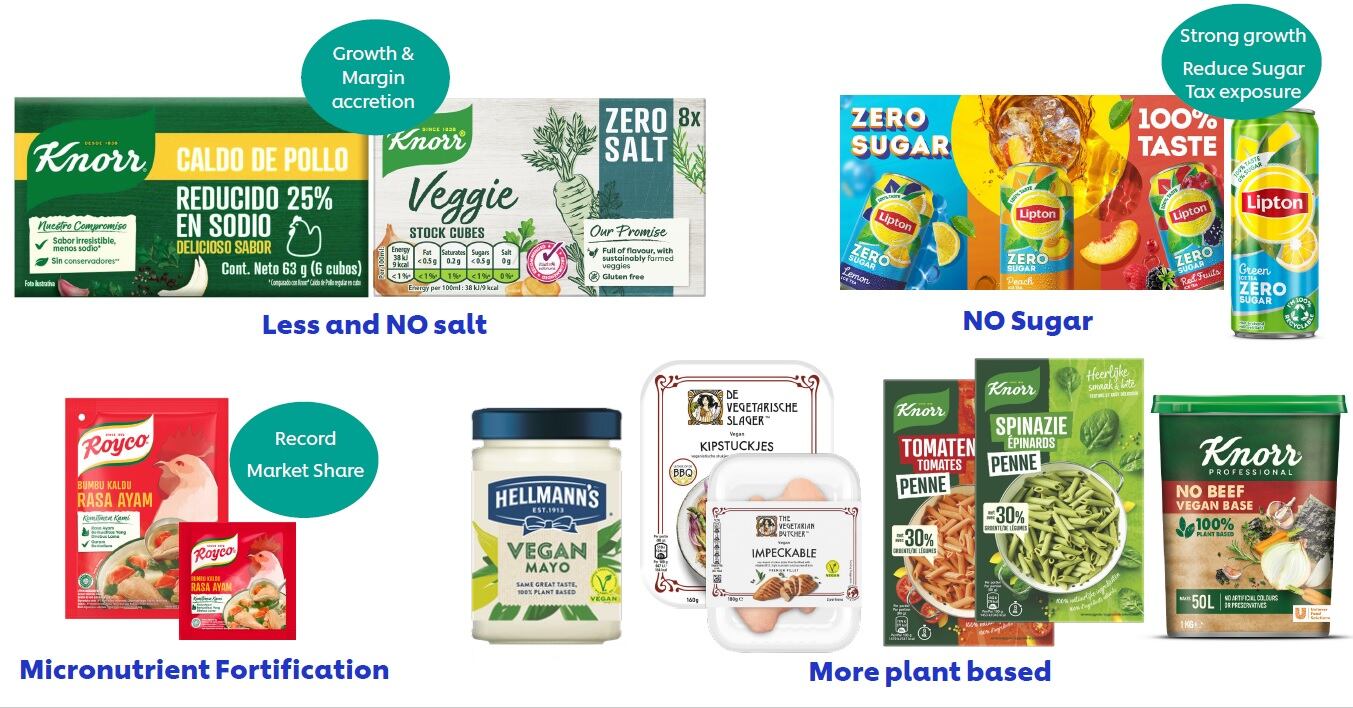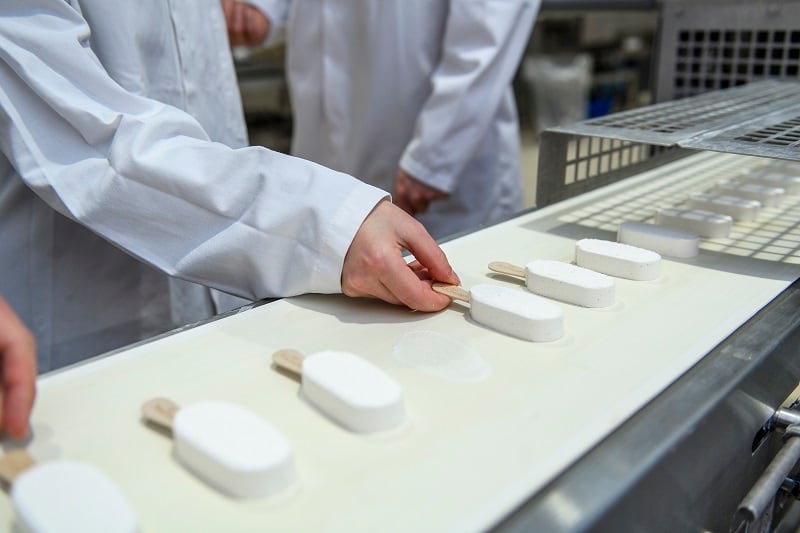“Until 2019, our product performance testing framework was solely focused on taste," said Hanneke Faber, president of Unilever’s nutrition division during the company’s investor day last month.
"Taste, of course, is really important in food and testing your product for taste against the competitor is critically important. However, what drives taste is often adding salt and sugar. Today, just taste is no longer enough."
In response, she explained, Unilever changed its product testing framework in 2019 to a “holistic superiority framework, where we test – of course – for taste, but also for clean label, for better for me, which means healthier, and better for the planet,” in addition to product performance.
For the company’s products to be rated “superior,” she said they needed all four elements.
Since that shift, the percentage of Unilever’s products considered “holistically superior” has increase from 75% to 89%, and they are driving growth.
For example, she said, Knorr zero salt veggie stock cubes and 25% reduced sodium chicken stock cubes are driving growth and margin accretion, as is Lipton Zero Sugar. In addition, Royco, a spice blend in 90% of Indonesian households, saw record market share when the company fortified it with micronutrients to help address the 30% of children in Indonesia who suffer from stunted growth because they don’t have enough iron and iodine.
Unilever also is expanding its plant-based offerings to appeal to consumer health demands, including products such as penne pasta made with 30% legumes and flavored with spinach and tomato, investing in The Vegetarian Butcher, which offers vegan meat alternatives, and offering a vegan Hellmann’s mayonnaise.
Sustainability, plant-based play heavily into Unilever’s ‘boldly healthier’ goals
Unilever’s investment in more plant-based offerings aligns with its “boldly healthier” commitments that complement the company’s new “holistically superior” testing framework.
Faber explained that by 2025, Unilever aims to make 1 billion euros in plant-based sales, halve food waste in its value chain, double the number of products with positive nutrition and continue to lower salt, sugar and calories across its portfolio.
“We also committed to doing more regenerative agriculture,” she said, explaining that “the food chain is responsible for so much greenhouse gas emissions. For us to deliver our Net Zero commitment it is critical that we change the way we farm in our supply chain. And we are excited that we have a pipeline of almost 100 scaled regenerative agriculture projects in the pipeline for Unilever nutrition.”
Unilever’s efforts are earning accolades, including the top spot out of 350 food and agriculture companies last year on a list from the World Benchmarking Alliance for its commitment to the United Nations Sustainable Development Goals and its delivery on them.
In the US, the Access to Nutrition Index listed Unilever in the number one spot and the FAIRR Protein Transition investor network also rated it as number one, Faber said.
Unilever tracks “exciting curve” as consumers cook at home more
Looking ahead, Faber said the nutrition division will build on these successes and continue to drive growth by tapping into several mega trends that are fueling overall market growth, including a “cooking renaissance” that began with the COVID outbreak and subsequent lockdowns.
“People around the world post-COVID are trying to cook more at home. They’re trying to cook with fresh ingredients, fresh vegetables, fresh meat, chicken and fish. But many of them don’t know how to cook and how to make those products tasty,” Faber said.
“That is where our products come in,” including the seasonings, scratch cooking aids and dressings that make up the majority of Unilever’s nutrition portfolio, Faber said, adding the company is seeing “an exciting curve there.”
Unilever is already moving on another mega-trend that finds consumers gravitating to plant-based products and brands that are more sustainable or actively looking to reduce the negative impact of the food industry on the environment.
For example, Faber pointed to Hellmann’s “make taste, not waste” campaign, which shows consumers how to convert a “fridge full of ‘nothing’” into something by adding Hellmann’s.
More people also want to live and eat healthier, as well as buy products that are local, plant-based or have a smaller impact on the planet, she added.



